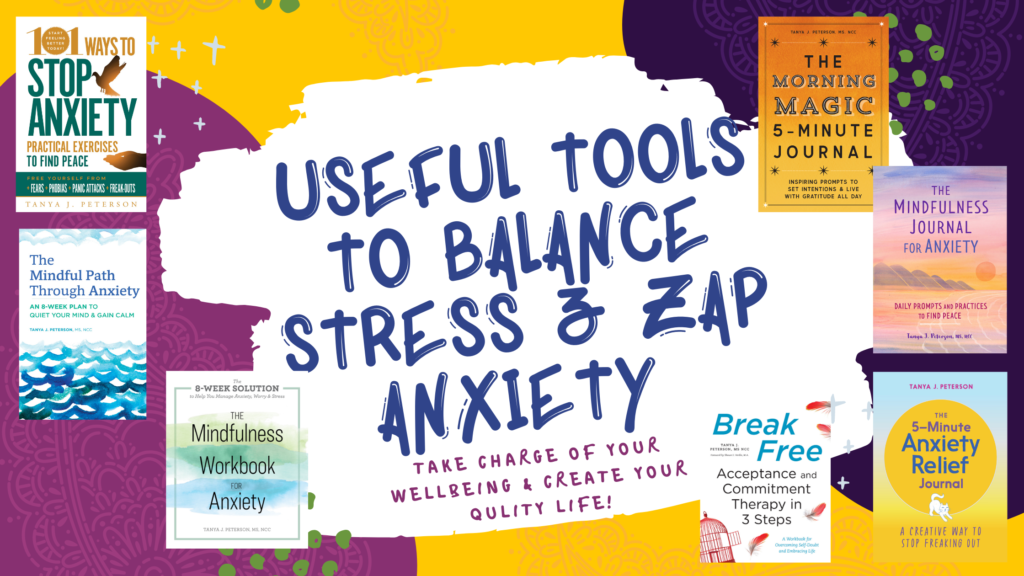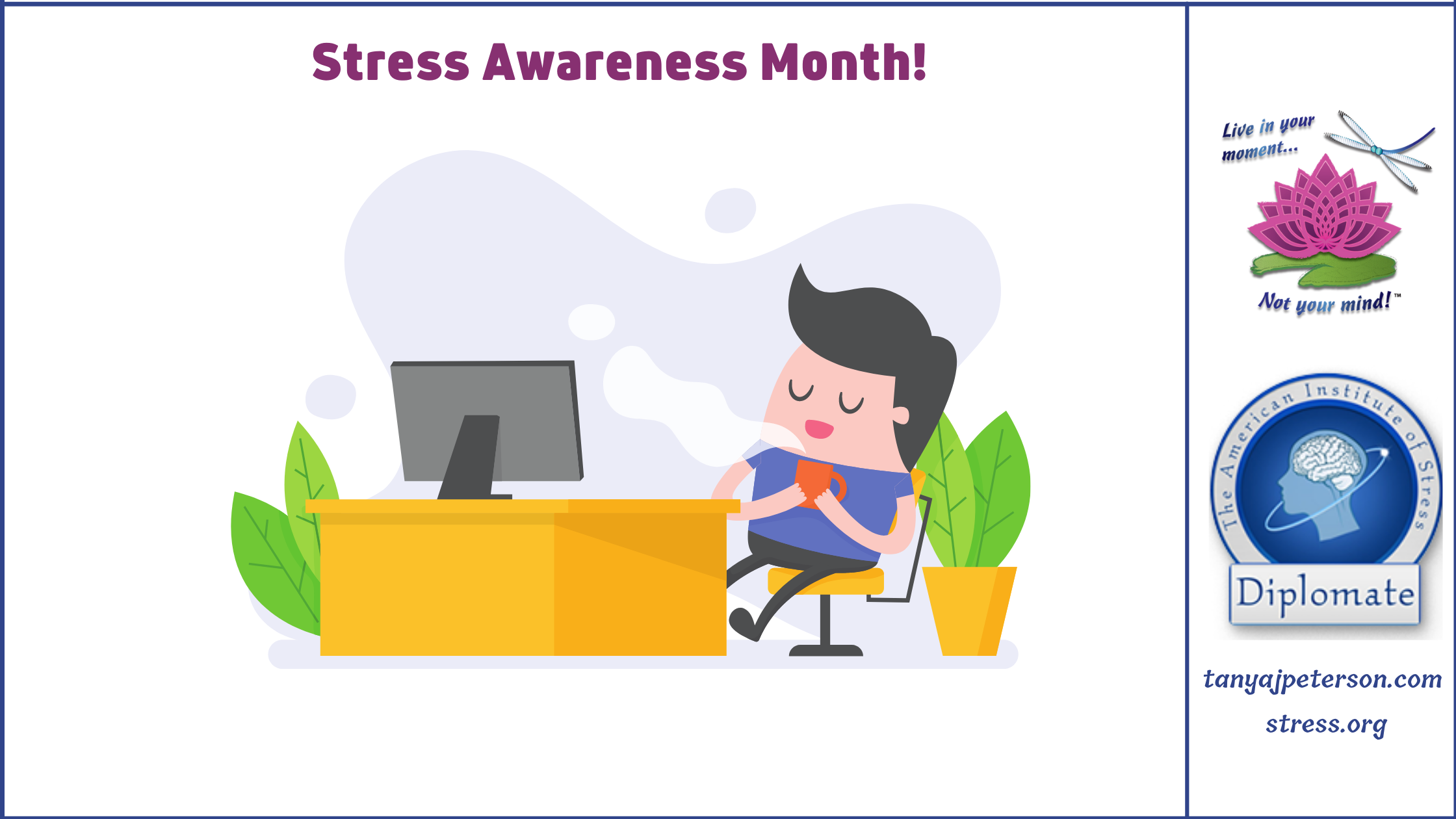The bodymind needs minibreaks throughout the day. Life is harried and rushed, and challenges meet us at every turn. We tend to multitask (which is actually counterproductive and unhealthy in and of itself) and jump from one fire to the next from the moment we wake up to the moment we lie down to (hopefully) sleep. The stress of this is damaging to our health and wellbeing, but we can take charge of our whole being and quality life simply by pausing for brief minibreaks.
Busyness, Stress, and Our Bodymind
Whether we love our job or hate it, experience lots of problems or relatively few, constantly being on is exhausting for both the brain and body. The more we do, the harder our system has to work to keep up. Throw experiences like anxiety, depression, relationship conflicts (both personal and professional), and constantly ricocheting ruminations and thoughts about this or that, and life becomes even more challenging for our systems to keep up with.
One way the body deals with all of this is to shift its operating system from the parasympathetic nervous system (PNS)–the calm one responsible for the rest-and-digest response–to the sympathetic nervous system (SNS)–the hypervigilant “go mode” one responsible for the fight-or-flight reaction.
When our SNS is activated, we can do more. We’re primed and ready to respond to threats and challenges like the lid slipping off the pot of spaghetti noodles that were to be dinner as you drain them, causing them to slither down the drain and now not only do you not have dinner but you have to dig slimy stuff out of the drain. This event is frustrating and bumps up our stress response. That response might calm down if it had a chance. However, the reality is that kids and pets are clamoring in the background, your phone is buzzing with messages from people needing a response, you’re composing an email in your head, and you’re now running late for whatever it was you needed to tend to after dinner.
This is a lot to deal with. In the moment, it might cause unpleasant stress symptoms such as:
- Headaches
- Muscle tension anywhere or everywhere in the body
- Cravings for processed foods high in fat and simple carbohydrates (the body needs immediate fuel to respond to the stressor and since you’re healthy dinner is down the drain, you’re thinking of more convenient things like fast food–and oh yeah, the TV is blaring in the background, overloading your senses and showing you all sorts of ads for unhealthy food)
- Difficulty thinking, concentrating, and decision-making
- Irritability and a short fuse
- Heart palpitations and/or chest pain
- Nausea
- Sweating
This is only a partial list of what you might be feeling in response to all the busyness and the thoughts running through your mind. Each person is unique, so your exact symptoms will be personal.
As a short-term response to a stressor, these symptoms aren’t damaging and the stress reaction helps you perform. However, when we don’t give ourselves a chance to pause and reset, the SNS remains activated on a long-term basis. Stress becomes chronic. Chronic stress contributes to all sorts of mental health challenges and medical problems.
Thankfully, and perhaps surprisingly, it doesn’t take much to disrupt chronic stress.
A Tip for Stress Awareness Month — Take Minibreaks
For many of us (yes, myself included), the idea of taking breaks sometimes ends up increasing stress. It seems like there is absolutely no time. Taking a break would cause work to pile up. The mere thought can send a surge of the stress hormone cortisol coursing through your system. Fair enough.
Happily, you don’t have to dedicate huge chunks of time to resetting your system. Build the healthy habit of taking simple, short breaks (minibreaks) between tasks to give your SNS a break and allow your PNS to kick in and soothe your bodymind for a bit.
Every time you complete a task, whether that’s sending an email, cleaning spaghetti noodles out of the drain, or sending a email, pause. Before you transition into the next activity on your enormous list, give your bodymind a rest and reset.
You might walk to a different room or take a step outside and take several slow, deep breaths. Perhaps you do this while moving your body–on a two-minute walk, a trip up and down a staircase, or doing a few yoga poses to relieve anxiety and stress. Mindfully sip a healthy beverage like green tea (avoid lots of caffeine, as caffeine stimulates and agitates the bodymind) or eat a few healthy bites.
Another great way to take a very short pause to reset is to close your eyes and engage in a visualization exercise. You can find guided imagery meditations on apps like Insight Timer or Calm or online. Or you can try this one:
A Simple, Mindful Visualization Exercise for your Stress-Relieving Minibreak
- Set a pleasant-sounding alarm on your phone to chime in about two minutes (adjust the time to your personal preference).
- Play some nature sounds (find them on Spotify or YouTube)
- Close your eyes or, if that makes you uncomfortable, lower your gaze so your eyes aren’t darting around looking at stuff and triggering a bunch of thoughts. Looking at something natural like a plant or some fish darting around brings the benefits of nature to you in the moment.
- Take several slow, deep breaths (this alone switches your nervous system activity from SNS to PNS).
- Picture yourself in a pleasant setting like a beach, forest, or hiking spot. Imagine it with all your senses: What do you see? Hear? Feel? Smell?
- When your mind wanders to your to-do list, simply breathe and return your thoughts to the scene.
- When your timer chimes, open your eyes, refocus on the present, and begin your next task.
Taking a short and simple break such as this mindful visualization exercise allows your bodymind a chance to reset between tasks. This keeps your nervous system in balance and keeps chronic stress at bay.
Discover many more ways to take minibreaks with these books, workbooks, and journals.

Parents, grandparents, and others: Help kids in your life develop the skills they need and gather tools for their own minibreaks now and throughout their lives with this mental health course found on the homeschool/online school resource Lernsys.




